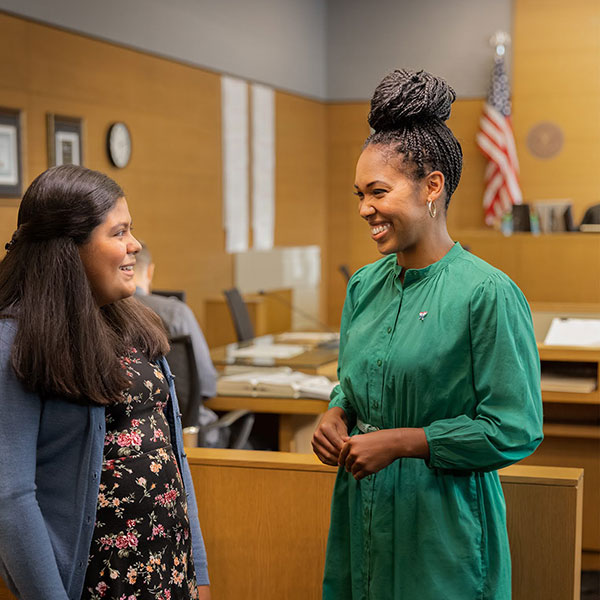Spotlight on Endowment Fundholders, Jefferson County CASA
Sister Marita Anne Marrah was lovingly referred to as “the little nun who could.” Even in her eighties, there was nothing she could or would not do as a Board member for Jefferson County CASA to ensure that every child has the opportunity to thrive in a safe, loving home. And, so, when another Board member provided the start for an endowment fund in 2021, it was only fitting to her that it would be named in honor of Sister Marita, who passed away that same year.
“We officially started the Sister Marita Anne Marrah Endowment Fund through YouthBridge in January of this year, and we are so proud to honor her legacy in this way,” says Alicia Knickman of Jefferson County CASA (Court Appointed Special Advocates). It also was important to find the right administrator to partner with, she says. “We did our homework – researching online, asking other organizations and CASAs – and YouthBridge’s name kept coming up. After we met and they explained the process so well, we were certain of our decision.”
Knickman describes YouthBridge as “very easy to work with” and is looking forward to the series of training sessions YouthBridge offers on maximizing an endowment fund. “We’re really hopeful for this investment to help set us up for long-term growth and success,” she says.
Jefferson County CASA is part of a network of 24 CASA organizations in Missouri and over 950 nationwide that provide one-on-one court advocacy to abused, neglected or abandoned children who are dependents of the juvenile court, i.e., in foster care. Within Jefferson County CASA’s jurisdiction, there are currently 700 children in foster care, and CASA is there for “the more difficult cases,” says Knickman, to be a voice and advocate as they move through the system toward permanent placement.
This is accomplished through an army of currently 90 volunteers, she says, who receive extensive training from CASA before being sworn in as court-appointed special advocates. Each volunteer is assigned a child, or family of children, whom they represent at all official meetings leading up to and including their final placement hearing. Volunteers visit with children at least monthly during a process that can sometimes stretch into four or five years. “During this time, they become a confidant and friend that the child knows they can trust to work on behalf of their best interests.”
In about 30-40% of cases that means reuniting with their biological family, according to Knickman. She tells the story of a girl just entering high school who really wanted to return home before graduation. “Our volunteer advocated for her timeline and, according to the girl, ‘heard her when no one else was listening’ to make it happen,” she says.
The caring and respect children receive through CASA is one way they are helping to break the cycle of child abuse and neglect, says Knickman. “Prevention is key, and having an example of unconditional love and kindness can stay with them.”
